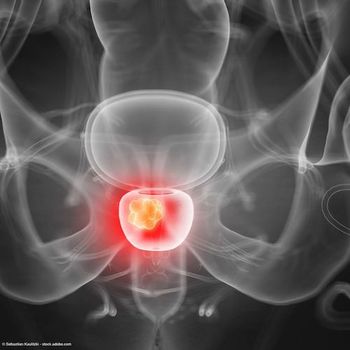
PSMA targeted CAR T-cell therapy shows antitumor activity in mCRPC
"This is the first time that I have seen such impressive responses with an immunotherapy product. The responses of my patients in the trial are far beyond my expectations," said study investigator Susan F. Slovin, MD, PhD.
The PSMA-targeted CAR T-cell therapy P-PSMA-101 showed clinical activity in patients with metastatic castration-resistant prostate cancer (mCRPC), according to preliminary findings from a phase 1 trial presented during the 6th Annual CAR-TCR Summit virtual meeting.1
Poseida Therapeutics, the developer of P-PSMA-101 reported in a press release that 3 of the first 9 patients treated with the CAR T-cell therapy had a greater than 50% PSA decline. Further, there was 1 patient who showed evidence of complete elimination of the tumor. At the time of the presentation, this patient was maintaining a durable response of more than 5 months.
"This innovative Poseida PSMA-directed CAR T-cell platform has demonstrated a robust antitumor response in patients with metastatic castration resistant prostate cancer," Susan F. Slovin, MD, PhD, associate vice chair of Academic Administration at Memorial Sloan Kettering Cancer Center and investigator on the trial, stated in the release. "This is the first time that I have seen such impressive responses with an immunotherapy product. The responses of my patients in the trial are far beyond my expectations."
The multicenter, open-label, dose-escalating phase 1 trial (NCT04249947) is assessing P-PSMA-101 in patients with progressive mCRPC and an ECOG performance status of 0 to 1.2 The target enrollment if 40 patients. The primary outcome measures are safety, efficacy, and maximum-tolerated dose.
The first 9 patients were heavily pretreated, with patients having been treated with an average of 6 prior therapy lines. The median time since diagnosis was 6.4 years. Overall, 5 of the 9 patients demonstrated measurable reductions in PSA levels. Among the 3 patients with a >50% PSA decline, there was also a corresponding improvement in PSMA-PET imaging.
Regarding toxicity, the investigators concluded that P-PSMA-101 was safe and tolerable. There were 3 cases of cytokine release syndrome, all of which were grade 1/2 and effectively controlled with early intervention. At the data cutoff, there had been no reported cases of neurotoxicity.
"We are excited about the preliminary data from our phase 1 trial of P-PSMA-101, which provides further evidence of the effectiveness of our CAR-T platform for solid tumor cancers," Eric Ostertag, MD, PhD, chief executive officer of Poseida, stated in the release. "To date, other CAR-T therapeutics have not had much success outside of hematologic malignancies. The deep and durable responses in our trial demonstrate that CAR-T products have the potential to work well against solid tumors, even at low doses, when using the appropriate technology platform."
Matthew Spear, MD, chief medical officer of Poseida, added in the release, "We believe the key to success in solid tumors is a product with a high percentage of desirable stem cell memory T cells (Tscm). In this study, we have demonstrated that a high-percentage Tscm CAR-T product can home to the bone marrow and, in at least one case, completely eliminate tumor. This bone marrow homing property may be particularly important for bone avid diseases such as prostate adenocarcinoma. Importantly, the favorable tolerability associated with our Tscm CAR-T products has carried over to prostate cancer where we have so far seen manageable cytokine release syndrome and no neurotoxicity."
References
1. Poseida Therapeutics Presents Preliminary Results from Phase 1 Trial of P-PSMA-101 at the 6th Annual CAR-TCR Summit. Published online August 31, 2021. Accessed August 31, 2021. https://bit.ly/3yz1rKb.
2. NIH ClinicalTrials.gov. P-PSMA-101 CAR-T Cells in the Treatment of Subjects With Metastatic Castration-Resistant Prostate Cancer (mCRPC). Last updated April 30, 2021. Accessed August 31, 2021. https://clinicaltrials.gov/ct2/show/NCT04249947
Newsletter
Stay current with the latest urology news and practice-changing insights — sign up now for the essential updates every urologist needs.






